The Collection of Medals to Welsh Regiments formed by the Late Llewellyn Lord The important Waterloo C.B. group of three awarded to Lieutenant-Colonel George Muttlebury, 69th Foot, who was taken prisoner at Bergen-op-Zoom and succeeded to the command of the 2/69th at Waterloo upon the death of Colonel Morice The Most Honourable Order of the Bath, C.B. (Military) Companion’s breast badge, 22 carat gold and enamels, hallmarked London 1815, maker’s mark ‘IE’ for John Edwards complete with wide swivel-ring gold suspension and gold ribbon buckle, minor enamel chips to wreaths, otherwise a superb piece; Waterloo 1815 (Lt. Col. Geo. Muttlebury, 2nd Batt. 69th Reg. Foot.) engraved alteration of rank from ‘Major’, fitted with silver clip and gilt bar suspension; Netherlands Military Order of Wilhelm, 4th Class breast badge, silver, gold and enamels, this with a few chips to green enamel, very rare; together with the recipient’s Order of the Bath Chapel Stall Plate, inscribed ‘George Muttlebury Esquire, Lieutenant-Colonel in the 69th (or South Lincolnshire) Regiment of Foot Companion of the Most Honourable Military Order of the Bath Nominated 22nd June 1815’, the second with light contact marks but generally very fine or better (4) £12000-15000 Footnote George Muttlebury was appointed Ensign in the 55th Foot on 12 November 1794; Lieutenant, 3 September 1795; Captain, 21 February 1798; exchanged to 69th Foot in 1802; Brevet Major, 10 July 1810; Major, 28 November 1811; Brevet Lieutenant-Colonel, 17 March 1814; Lieutenant-Colonel 10 August 1815; retired 3 October 1826. He joined his regiment in December 1794, then encamped before Nijmegen on the Wahl, and served with the Army during the retreat through Holland, during the severe winter which was very fatal to the troops. Upon promotion to Lieutenant in September 1795, he was appointed to the Grenadier Company and commanded part of the reserve of the Army under Sir Ralph Abercromby at the Helder. He then sailed with the fleet under Admiral Christian for the Leeward Islands. After escaping the dreadful gales which occasioned the loss of many vessels, he was present at the taking of St Lucia, where the 55th remained constantly employed against the brigands for eleven months, for the greater part of which he was detached in advance, and on one occasion while escorting Sir John Moore (then Governor and Commander of the Forces) was attacked by about 250 men who were repulsed with the loss of their ammunition; on another occasion, when posted on the estate of Messrs. Rigby & Freeland, with 30 men, he was attacked in the dead of the night by upwards of 250 brigands, who set fire to the Negro huts, but unknown to them a party of the regiment had fortunately halted at his post for the night, which enabled them to beat off their attackers with considerable loss. The 55th Regiment, while at St Lucia, lost 25 officers and upwards of 600 men. The remainder were drafted into other corps and the regiment returned to England. In 1799 he accompanied the expedition under Sir Ralph Abercromby to the Helder, the 55th Regiment being on the Reserve commanded by Colonel McDonald. Muttlebury was constantly in advance and was present in the action with the enemy in North Holland. In 1801 he again sailed for the West Indies, in consequence of the mutiny of the West India Regiment in Dominica, but all being quiet on their arrival, was ordered to Jamaica, where he remained until the Peace. He exchanged to the 69th Regiment in 1802, and in 1805 sailed for the East Indies, and after three years residence in Madras, was obliged to quit the country from ill health. In November 1813 he embarked with the 2/69th for Holland and continued serving on the Continent until the commencement of 1816. He was present at the bombardment of the French fleet at Antwerp, and at the attack on Bergen-op-Zoom, when he was taken prisoner. For his services on that occasion, when in command of the battalion in the second attack, he was menti
The Collection of Medals to Welsh Regiments formed by the Late Llewellyn Lord The important Waterloo C.B. group of three awarded to Lieutenant-Colonel George Muttlebury, 69th Foot, who was taken prisoner at Bergen-op-Zoom and succeeded to the command of the 2/69th at Waterloo upon the death of Colonel Morice The Most Honourable Order of the Bath, C.B. (Military) Companion’s breast badge, 22 carat gold and enamels, hallmarked London 1815, maker’s mark ‘IE’ for John Edwards complete with wide swivel-ring gold suspension and gold ribbon buckle, minor enamel chips to wreaths, otherwise a superb piece; Waterloo 1815 (Lt. Col. Geo. Muttlebury, 2nd Batt. 69th Reg. Foot.) engraved alteration of rank from ‘Major’, fitted with silver clip and gilt bar suspension; Netherlands Military Order of Wilhelm, 4th Class breast badge, silver, gold and enamels, this with a few chips to green enamel, very rare; together with the recipient’s Order of the Bath Chapel Stall Plate, inscribed ‘George Muttlebury Esquire, Lieutenant-Colonel in the 69th (or South Lincolnshire) Regiment of Foot Companion of the Most Honourable Military Order of the Bath Nominated 22nd June 1815’, the second with light contact marks but generally very fine or better (4) £12000-15000 Footnote George Muttlebury was appointed Ensign in the 55th Foot on 12 November 1794; Lieutenant, 3 September 1795; Captain, 21 February 1798; exchanged to 69th Foot in 1802; Brevet Major, 10 July 1810; Major, 28 November 1811; Brevet Lieutenant-Colonel, 17 March 1814; Lieutenant-Colonel 10 August 1815; retired 3 October 1826. He joined his regiment in December 1794, then encamped before Nijmegen on the Wahl, and served with the Army during the retreat through Holland, during the severe winter which was very fatal to the troops. Upon promotion to Lieutenant in September 1795, he was appointed to the Grenadier Company and commanded part of the reserve of the Army under Sir Ralph Abercromby at the Helder. He then sailed with the fleet under Admiral Christian for the Leeward Islands. After escaping the dreadful gales which occasioned the loss of many vessels, he was present at the taking of St Lucia, where the 55th remained constantly employed against the brigands for eleven months, for the greater part of which he was detached in advance, and on one occasion while escorting Sir John Moore (then Governor and Commander of the Forces) was attacked by about 250 men who were repulsed with the loss of their ammunition; on another occasion, when posted on the estate of Messrs. Rigby & Freeland, with 30 men, he was attacked in the dead of the night by upwards of 250 brigands, who set fire to the Negro huts, but unknown to them a party of the regiment had fortunately halted at his post for the night, which enabled them to beat off their attackers with considerable loss. The 55th Regiment, while at St Lucia, lost 25 officers and upwards of 600 men. The remainder were drafted into other corps and the regiment returned to England. In 1799 he accompanied the expedition under Sir Ralph Abercromby to the Helder, the 55th Regiment being on the Reserve commanded by Colonel McDonald. Muttlebury was constantly in advance and was present in the action with the enemy in North Holland. In 1801 he again sailed for the West Indies, in consequence of the mutiny of the West India Regiment in Dominica, but all being quiet on their arrival, was ordered to Jamaica, where he remained until the Peace. He exchanged to the 69th Regiment in 1802, and in 1805 sailed for the East Indies, and after three years residence in Madras, was obliged to quit the country from ill health. In November 1813 he embarked with the 2/69th for Holland and continued serving on the Continent until the commencement of 1816. He was present at the bombardment of the French fleet at Antwerp, and at the attack on Bergen-op-Zoom, when he was taken prisoner. For his services on that occasion, when in command of the battalion in the second attack, he was menti




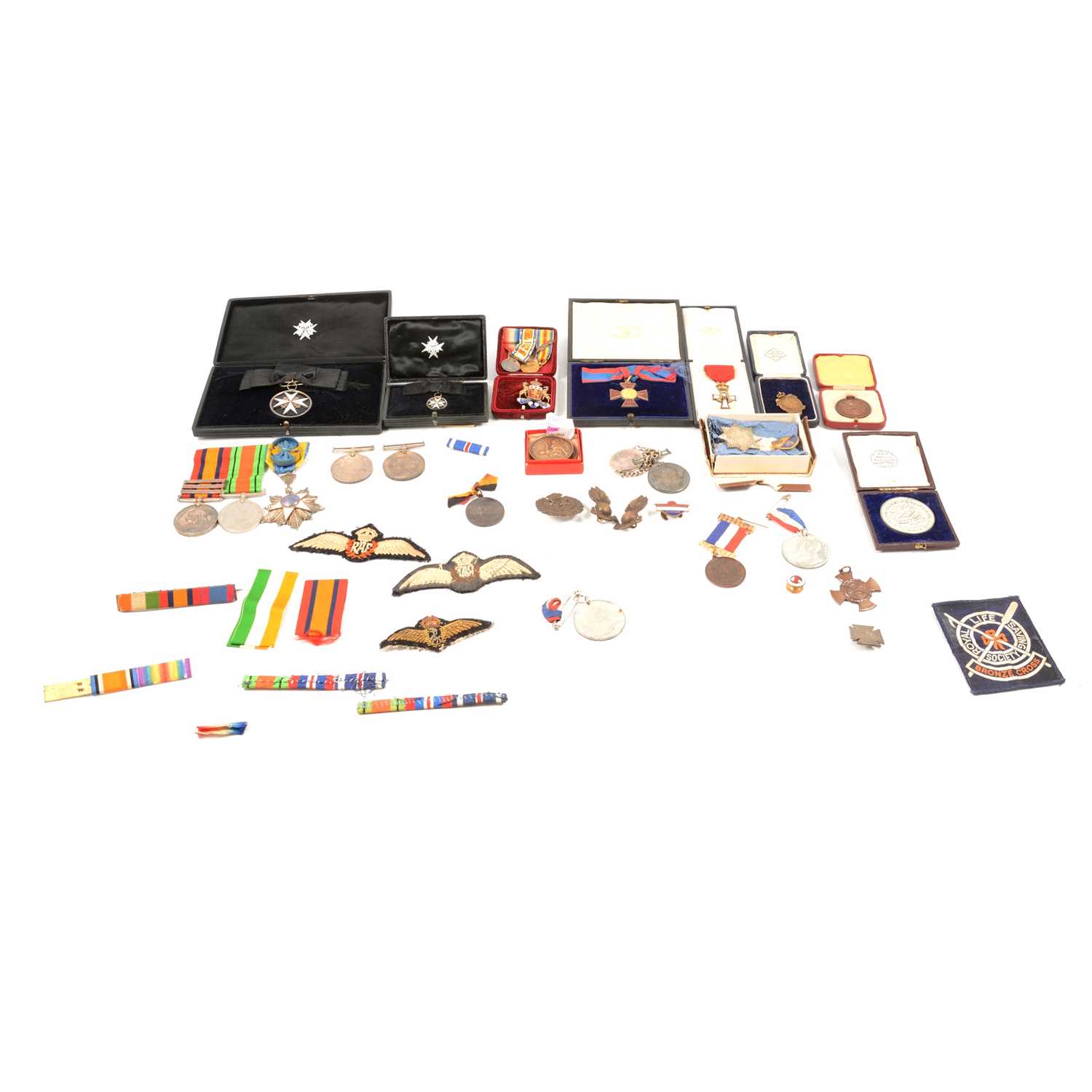

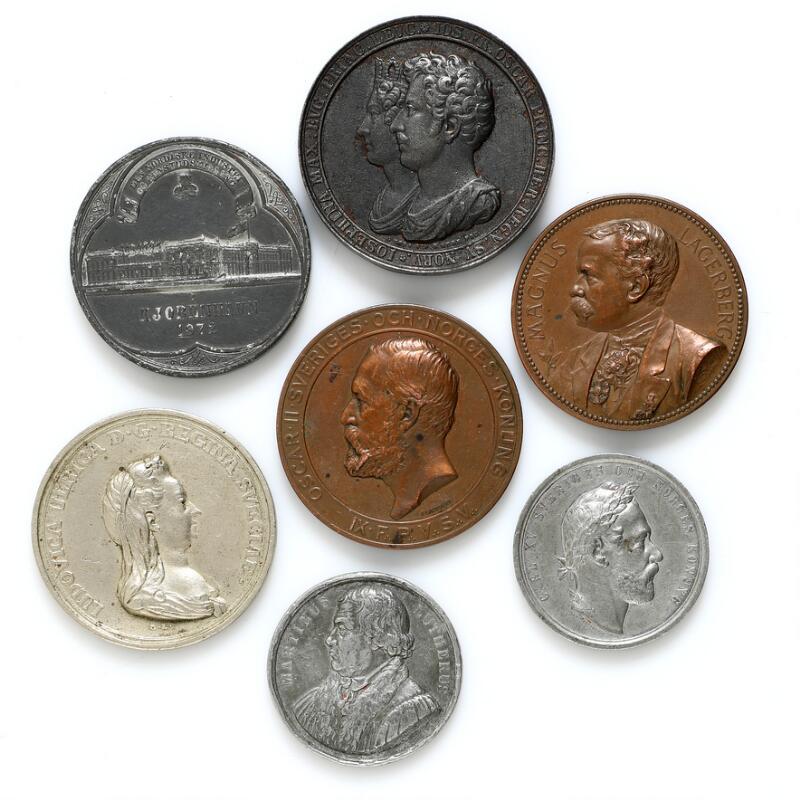


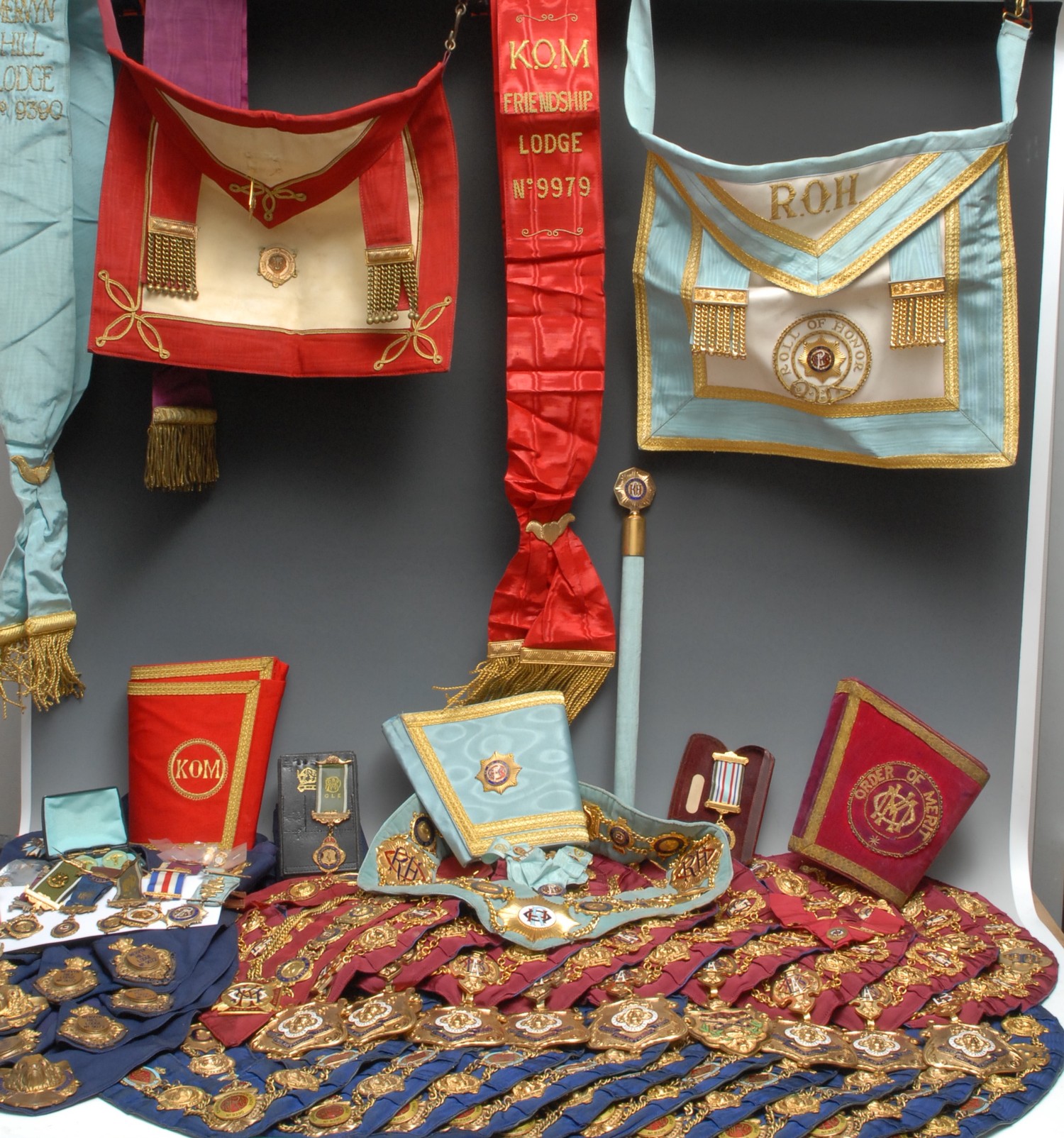
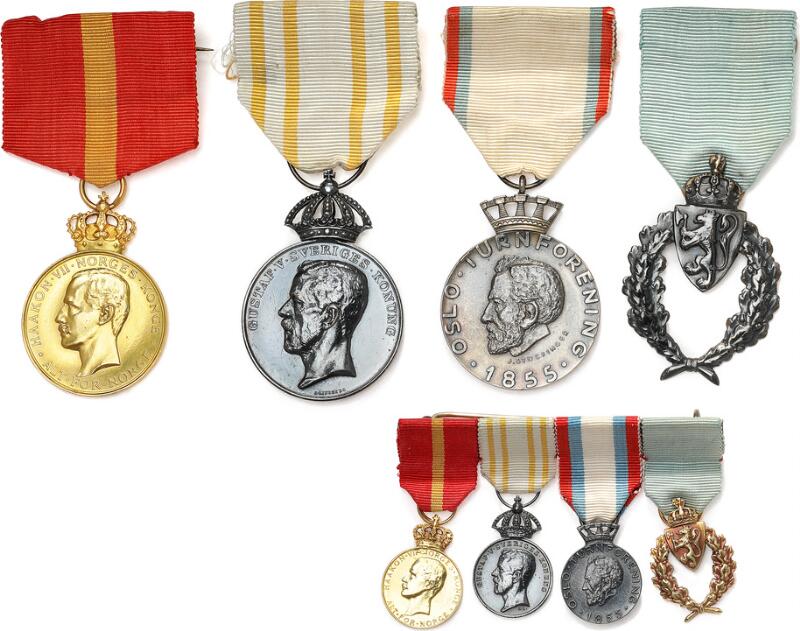


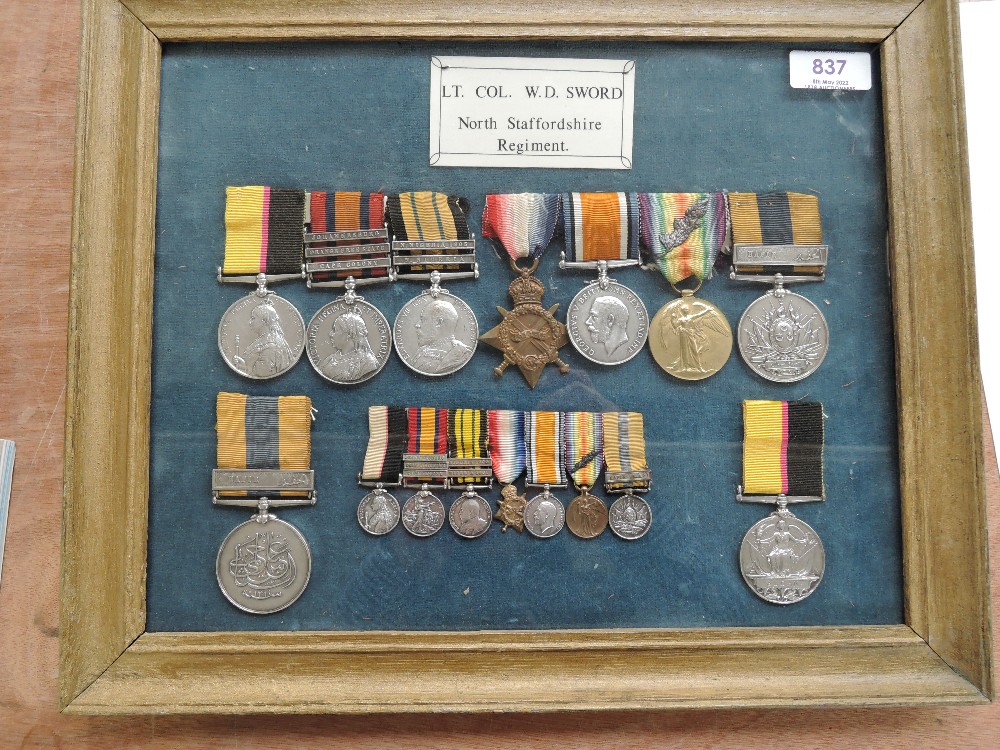
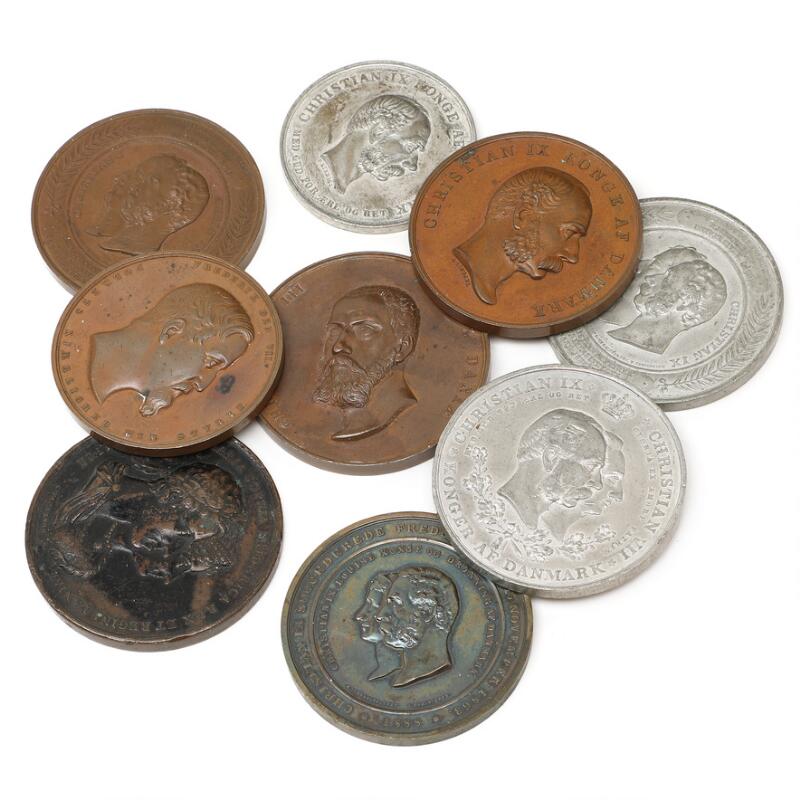
Testen Sie LotSearch und seine Premium-Features 7 Tage - ohne Kosten!
Lassen Sie sich automatisch über neue Objekte in kommenden Auktionen benachrichtigen.
Suchauftrag anlegen